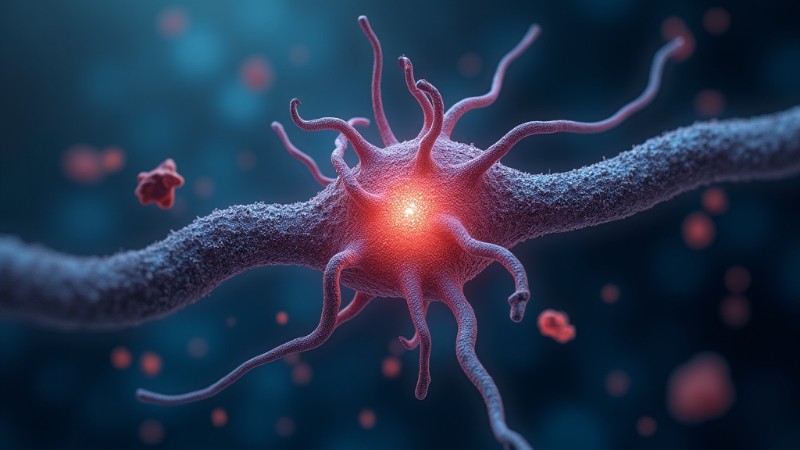Living with anxiety can be overwhelming, impacting both emotional and physical well-being. It manifests in different ways, sometimes making daily tasks feel insurmountable. In the U.S., research shows that around 31% of adults will experience an anxiety disorder during their lifetime, highlighting the widespread nature of this condition.
While anxiety may feel isolating, it’s crucial to understand that it’s a common experience. Addressing mental health proactively can pave the way for a healthier and more fulfilling life.
The importance of addressing mental health
Anxiety disorders, often characterized by excessive worry or fear, can disrupt daily life, affecting relationships and overall functioning. Left unchecked, anxiety can lead to serious issues such as depression, substance abuse, and even suicidal thoughts. Acknowledging the importance of mental health is the first step toward managing these concerns. When mental health is prioritized, individuals are better equipped to lead more balanced lives and tackle the challenges that anxiety presents.
Understanding the severity of untreated anxiety is key. Without intervention, the effects can compound, making it harder to recover. Early action allows for more effective treatment and recovery options.
Approaches to managing anxiety
Learning about anxiety: Understanding anxiety is crucial to overcoming it. Many people benefit from learning about the “fight-or-flight” response, which is often mistakenly triggered in anxiety sufferers by harmless situations. By educating yourself on how anxiety works, you can regain control over symptoms.
Mindfulness: Mindfulness helps by anchoring attention in the present, reducing the tendency to get lost in worry or unhelpful thoughts. Regular mindfulness practice has been shown to decrease anxiety levels, allowing people to unhook from their anxiety-driven thought patterns.
Relaxation techniques and correct breathing: Techniques like progressive muscle relaxation and abdominal breathing can help alleviate the physical symptoms of anxiety. Breathing exercises, such as diaphragmatic breathing, prevent hyperventilation and maintain healthy carbon dioxide levels, which can regulate the body’s anxiety response.
Cognitive and Behavioral Therapy (CBT): Cognitive therapy addresses unhelpful thought patterns that fuel anxiety by identifying irrational fears and reshaping beliefs. In contrast, behavioral therapy focuses on controlled exposure to fears, helping individuals gradually reduce their anxiety response.
For example, exposure therapy guides patients to confront fears incrementally, starting with less anxiety-provoking situations and progressing to more challenging ones. This desensitization process builds confidence and breaks the cycle of avoidance behaviors.
Lifestyle and dietary adjustments
Certain nutrients play a role in managing anxiety. Magnesium, B vitamins, and calcium help regulate mood and muscle relaxation. Avoiding caffeine, nicotine, and processed foods is also beneficial, as these can heighten the body’s stress response.
Physical activity helps burn off stress chemicals like adrenaline and promotes relaxation. Regular exercise like walking, swimming, or yoga can significantly reduce anxiety levels. Aim for at least three to four exercise sessions per week.
Building confidence and problem-solving skills
Learning to assert yourself can prevent anxiety from taking over social interactions. People with anxiety often struggle with low self-esteem, and building confidence through assertiveness training can help improve how they relate to others. Additionally, tackling low self-esteem is vital, as it often worsens anxiety. Support groups and counseling can help rebuild self-worth.
Rather than worrying endlessly about problems, structured problem-solving helps individuals break issues down into manageable steps and find practical solutions. This approach is particularly useful for those with generalized anxiety disorder (GAD), who may feel overwhelmed by everyday stressors.
Medical interventions and support groups
While medications such as tranquilizers and antidepressants can provide short-term relief, they are not typically seen as a long-term solution. Instead, psychological therapies like CBT tend to offer more sustainable results. Medications can sometimes be used with therapy to help manage symptoms initially.
Meeting others with similar experiences can provide comfort and encouragement. Support groups offer a space to share coping strategies, foster social connections, and learn more about anxiety management.
Managing anxiety requires a multifaceted approach that includes education, therapeutic techniques, and lifestyle changes. Strategies like relaxation exercises, mindfulness, and support groups can help you regain control. With the right tools and support, recovery is possible, providing hope for a more balanced and fulfilling life.















